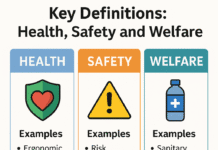
What is Lethal 50 Dose? Unveiling the Science Behind It
In a world filled with scientific terms and jargon, “lethal 50 dose” might sound like something straight out of a sci-fi movie. However, this term holds significant importance in various fields, particularly toxicology and pharmacology. In this comprehensive article, we will delve into the intricacies of the lethal 50 dose, exploring what it is, how it’s determined, and why it matters.
Understanding the Basics
What Does Lethal 50 Dose Mean?
To put it simply, the lethal 50 dose, often abbreviated as LD50, is a crucial metric used to measure the toxicity of a substance. It represents the amount of a specific substance or agent required to cause the death of 50% of a test population within a specified time frame. This metric is primarily used in experiments involving animals, as it would be ethically unacceptable to conduct similar tests on humans.
The Historical Perspective
The concept of LD50 dates back to the early 20th century when toxicologists and scientists sought a standardized way to measure the toxicity of various chemicals. It has since become an essential tool in assessing the potential risks associated with exposure to different substances.
Calculating LD50
The Math Behind It
Calculating the LD50 involves a series of complex mathematical equations and statistical analyses. Researchers typically use a method known as the “probit analysis” to determine the dose-response relationship. This process helps establish a dose at which 50% of the test subjects would succumb to the substance’s toxicity.
Factors Affecting LD50
It’s important to note that LD50 values can vary widely based on several factors. These include the species of the test subjects, the administration method (oral, dermal, inhalation, etc.), and the duration of exposure. Therefore, LD50 values are not fixed but rather context-specific.
Significance of LD50
Regulatory Purposes
LD50 values play a critical role in regulatory and safety assessments. Government agencies, such as the Environmental Protection Agency (EPA) and the Food and Drug Administration (FDA), use LD50 data to establish safety guidelines and regulations for chemicals and pharmaceuticals.
Product Development
In the pharmaceutical industry, LD50 data are vital during drug development. It helps researchers determine the safe dosage range for new medications, ensuring that potential side effects or toxicity risks are minimized.
Ethical Considerations
The Ethical Dilemma
While LD50 testing has contributed significantly to our understanding of toxicology, it is not without controversy. Many ethical concerns surround the use of animals in these experiments. Advocates for animal rights argue that alternative testing methods, such as in vitro and computational modeling, should be explored to reduce the reliance on animal testing.
Conclusion
In conclusion, the lethal 50 dose, or LD50, serves as a crucial benchmark in toxicology and pharmacology. It helps us assess the toxicity of various substances, thereby guiding regulatory decisions and ensuring the safety of products in the market. However, the ethical concerns surrounding LD50 testing continue to spark debates, pushing the scientific community to explore alternative methods.
Hi-POT Testing of HT Cable & LT Cable: Hazards and Precautions
Emergency Response and Disaster Preparedness
Subcontractor Safety Management
Frequently Asked Questions (FAQs)
- Is LD50 testing still commonly used in scientific research today? Yes, LD50 testing is still used in specific research areas, but there is a growing effort to explore alternative testing methods that do not involve animal experimentation.
- How can LD50 values be applied in everyday life? LD50 values are primarily used by regulatory agencies and industries to ensure the safety of products and substances. They help establish safe dosage levels for medications and set limits on potentially harmful chemicals in the environment.
- Are there any international standards for LD50 testing? There are no universal standards for LD50 testing, but different countries and organizations have their guidelines and regulations for conducting these tests.
- What are the ethical considerations when conducting LD50 experiments on animals? Ethical concerns revolve around the use of animals in potentially harmful experiments. Many advocate for the development and adoption of alternative, cruelty-free testing methods.
- Where can I learn more about LD50 and its applications? You can find extensive resources on LD50 and related topics in scientific journals, textbooks, and online databases. Additionally, consulting with experts in toxicology and pharmacology can provide valuable insights.
























